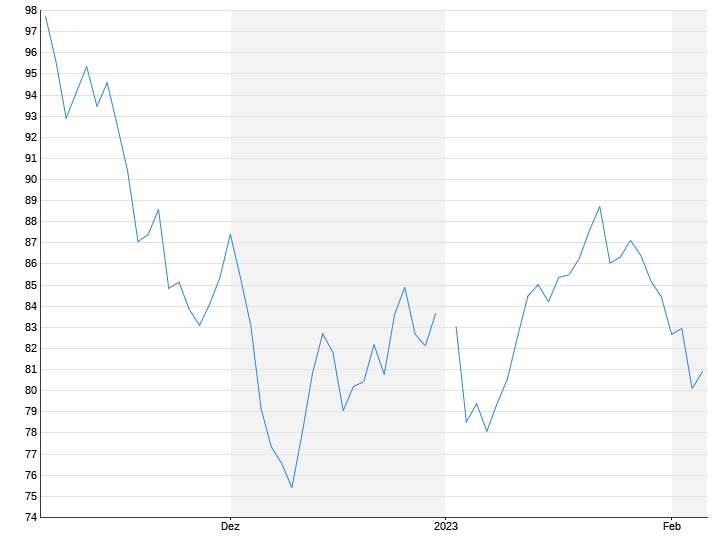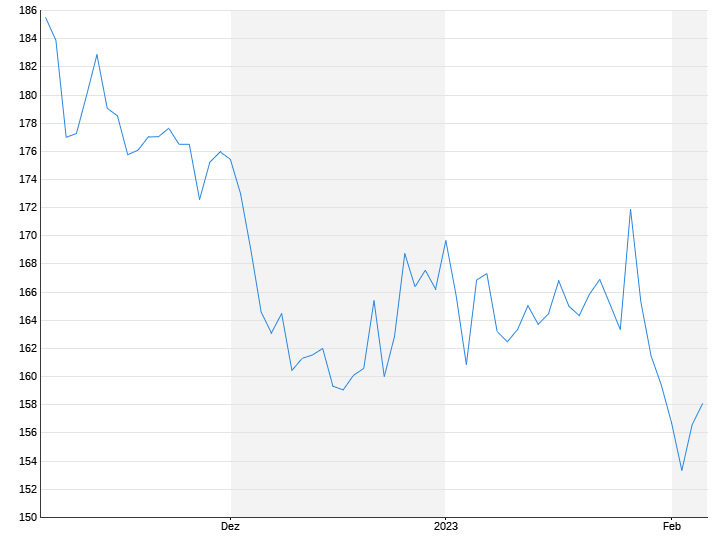Crisis profiteer “Big Oil”
That’s why oil companies are making horrendous profits
2/7/2023 7:52 am
It’s one of the biggest excitements of the energy crisis: While consumers groaned under high prices for heating or fuel, the oil industry earned better than ever last year. Shell and BP in Great Britain, ExxonMobil and Chevron in the USA, TotalEnergies in France – thanks to the sharp rise in oil and gas prices caused by the Ukraine war, the heavyweights in the industry, known as the “Big Five”, made horrendous profits.
Why is the topic so controversial?
Many people are outraged that in times of high inflation and rising key interest rates, but also global warming and climate crises, the oil and raw materials sector is swimming in money. Critics are demanding higher investments in development projects and renewable energies from the corporations, which distribute enormous sums to their investors through share buybacks and dividends.
Who are the biggest beneficiaries?
The largest US oil company Exxon alone made a net profit of almost 56 billion dollars in 2022 – around 140 percent more than in the previous year and the highest result in the company’s more than 140-year history. Experts estimate that Exxon, Chevron, BP, Shell and Total made a combined profit of around $190 billion last year.
Why did the oil multinationals earn so much?
The decisive factor was the rise in energy prices. The price shock from Russia’s war against Ukraine made crude oil more expensive in the spring than it has been in over ten years. The barrel (159 liters) of the North Sea Brent cost at times almost 140 dollars. Since then it has gone down again, most recently the barrel was around 80 dollars.

The high prices are not the only reason for the mega profits. “Unlike gains, oil prices have not hit records,” German University of Massachusetts economist Isabella Weber told a US congressional hearing in September. Low production costs are also an important factor. The industry has shut down expensive production facilities due to the slump in demand during the pandemic and has not yet put them back into full operation – although the economic recovery from the Corona crisis has increased global oil demand again and limited supply due to the Ukraine war and sanctions against Russia had been.
According to US government information, global oil consumption in 2022 was slightly below the pre-corona level of 2019. There are simply few incentives for oil companies to expand production, says expert Weber. “Who wants to fund more to earn less?”
What are politicians doing?
In October, US President Joe Biden publicly described companies like Exxon as “war profiteers” that failed to meet their social responsibilities. The verbal attack took place during the US election campaign, but it shows how the industry is heating up tempers. Biden announced that he would examine options to hold the oil industry accountable. Europe was already one step ahead: in September, the EU decided to impose a so-called excess profit tax on the spectacular profits of energy companies. The money is to be used to finance relief for citizens and companies. Exxon has already announced that it will legally challenge the tax.
Could companies have avoided the price increases?
Individual corporations usually produce too little to have a major impact on the global oil supply. Above all, the oil alliance Opec+ has pricing power. The influence of the cartel, led by major producer Saudi Arabia and expanded in 2016 to include ten non-Opec countries – including Russia – is significant, with a global market share of about 40 percent. The global demand for oil, which depends on the economy, is also decisive. During the economic downturn in the Corona crisis, the multinationals had to sell well below their production costs at times. In 2020, Exxon lost $22.4 billion. The corporations see themselves wrongly pilloried: “The demonization of the oil industry must stop,” complained the US industry association WSPA in October.
What exactly are the oil companies accused of?
A frequently heard accusation is that companies do not spend more money to provide more energy in times of scarcity and high prices. Exxon CEO Darren Woods dismisses him: “While our results have clearly benefited from the benign market environment, the counter-cyclical investments we made before and during the pandemic provided people with the energy they needed as the economic recovery took hold and supply became scarce”.
Exxon as a helper in need?
In fact, according to its own statements, the largest western oil company spent around 22.7 billion dollars on investments in equipment and exploration and production projects in 2022 – with sales of 413.7 billion.
What are the companies doing with all the money?

Chevron recently announced that it would distribute profits to its shareholders on a large scale. From April, shares worth up to 75 billion dollars are to be bought back. In addition, Chevron wants to pay shareholders a quarterly dividend of $1.51 per share – a good six percent more than in the previous three months. Chevron’s earnings payouts caused a stir given the staggering volume, but the rest of the industry isn’t neglecting its shareholders either. This makes the pulse of critics who want more investment rise. US President Biden has already spoken out in favor of a special tax on share buybacks.
How does the industry justify its profit distributions?
The oil and gas industry is a robust driver of the US economy – from which millions of American households benefit through direct stock ownership, shares in mutual funds, pension plans or other financial products, according to the lobby group American Petroleum Institute. According to economist Weber, the real winners of the oil bonanza are primarily wealthy investors, Wall Street financiers and wealth managers. Poor people, companies and governments suffering from high energy prices are the losers. Share buybacks and dividends also serve to maintain the share price and improve certain balance sheet ratios – this can also be of great benefit to management.
